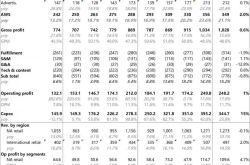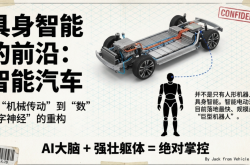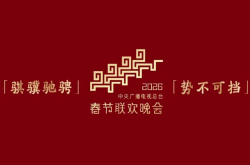Opportunities and Challenges Converge: Global Expansion in AI | Launch of "Opportunities and Case Studies in AI Internationalization"
![]() 01/17 2025
01/17 2025
![]() 418
418
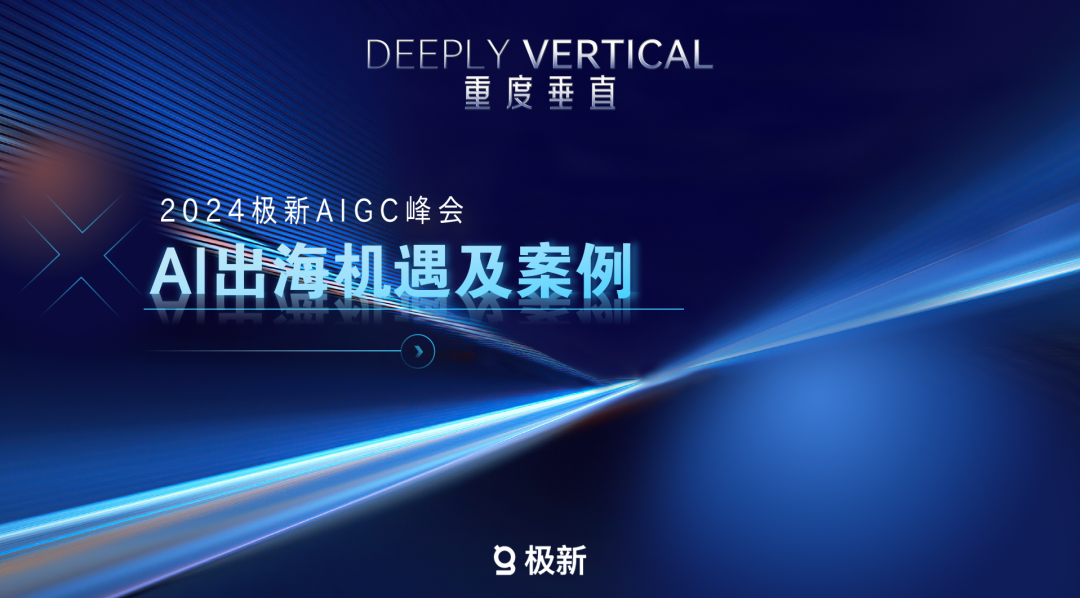
In recent years, artificial intelligence (AI) technology has undergone rapid development, emerging as a pivotal frontier in global technological competition. As significant players in the global AI landscape, numerous Chinese enterprises have set their sights on overseas markets, embarking on a journey to internationalize their AI offerings. Is going overseas a necessity? From a data perspective, SensorTower's "AI Application Market Insights 2024" report reveals that, as of June 2024, the global active user base for AI applications reached 230 million, with global revenues amounting to approximately $3.3 billion in 2024, projected to soar to $18.8 billion by 2028. This underscores the vast potential in overseas markets. So, where should these enterprises venture? A global review reveals that Japan boasts advanced levels of automation and intelligence in elderly care applications. With China's aging population gradually approaching Japan's, it is anticipated to become a similarly aged society by 2030. Southeast Asia, on the other hand, boasts a large population base and a thriving digital economy. Meanwhile, the Middle East is accelerating its infrastructure development, potentially becoming one of the fastest-growing regions globally for infrastructure construction in the coming years. Major global smart city suppliers such as Huawei, Hikvision, and HP are already making strategic market moves in the Middle East. As we step into 2025, Chinese AI enterprises venturing overseas find themselves at a new starting point, confronted with unprecedented opportunities and challenges. The integration and innovation of global AI technology will further accelerate, leading to profound changes in policy environments, market demands, technological foundations, and other aspects, necessitating strategic adjustments and capability enhancements for enterprises. In this context, Jixin, in collaboration with the Hong Kong IoT Association, Qianhai Hong Kong Youth Home for Science and Technology, Hong Kong Federation of Youth in Science and Technology, Wondershare, Qizhidao, Chuangketie, Bayou Technology, and PixelBloom (AiPPT.com), jointly launched the "Opportunities and Case Studies in AI Internationalization" report. Through meticulous observation and analysis of the current status and challenges faced by AI enterprises expanding overseas, we have identified three primary opportunities for AI internationalization:
1. Technological Innovation Drive
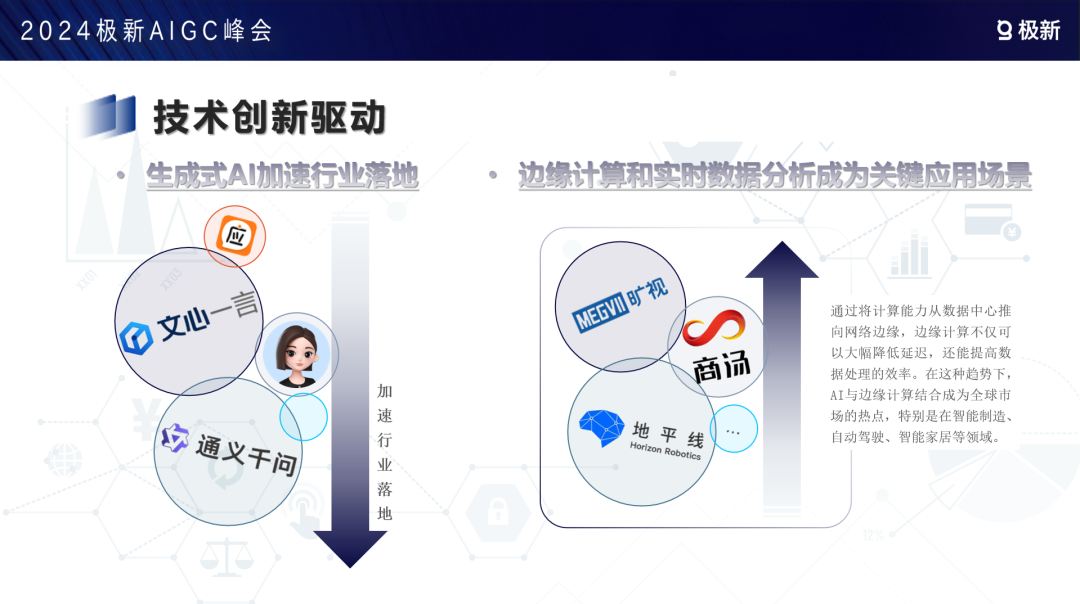
2. AI+Hardware Internationalization
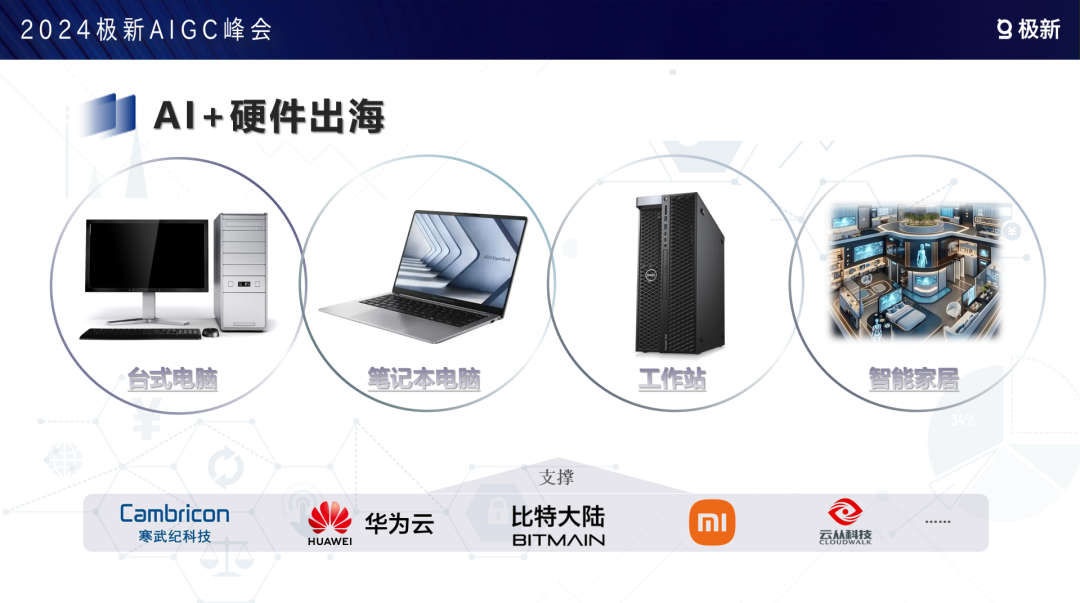
3. Enhancing Cultural Relevance + Securing International Compliance Certifications
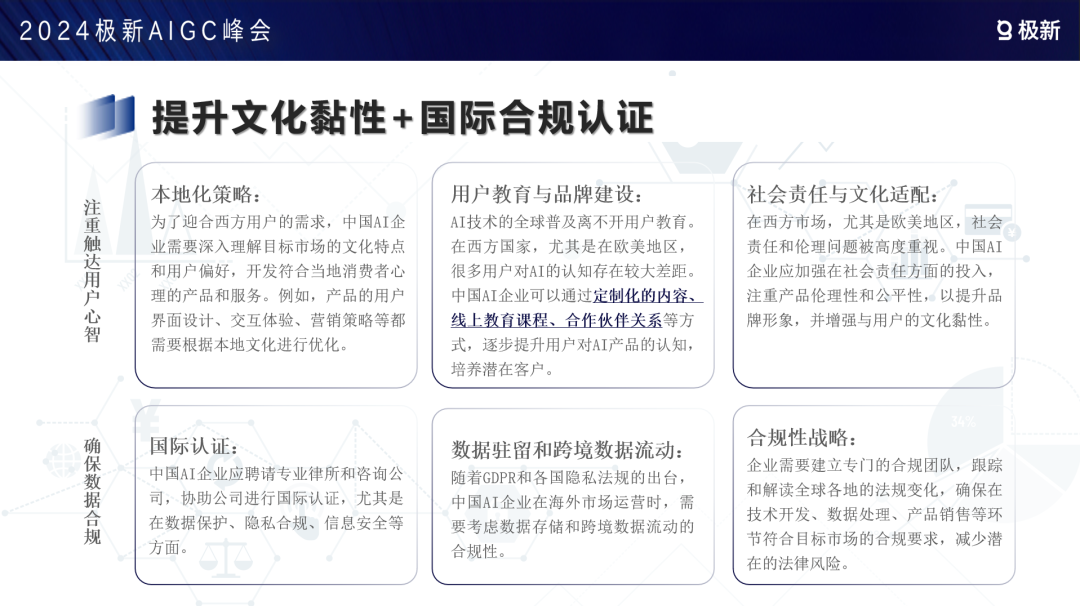
Why Expand AI Overseas?
1. Domestic Market: The anticipated explosion in AI application layer growth has yet to materialize
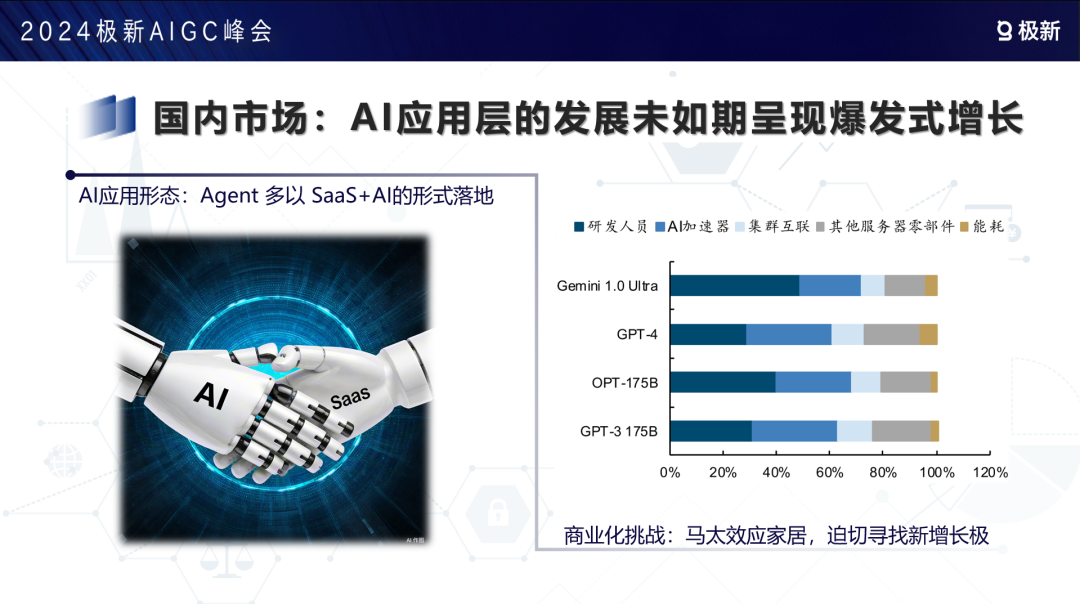
2. Global Market: Favorable overseas market conditions
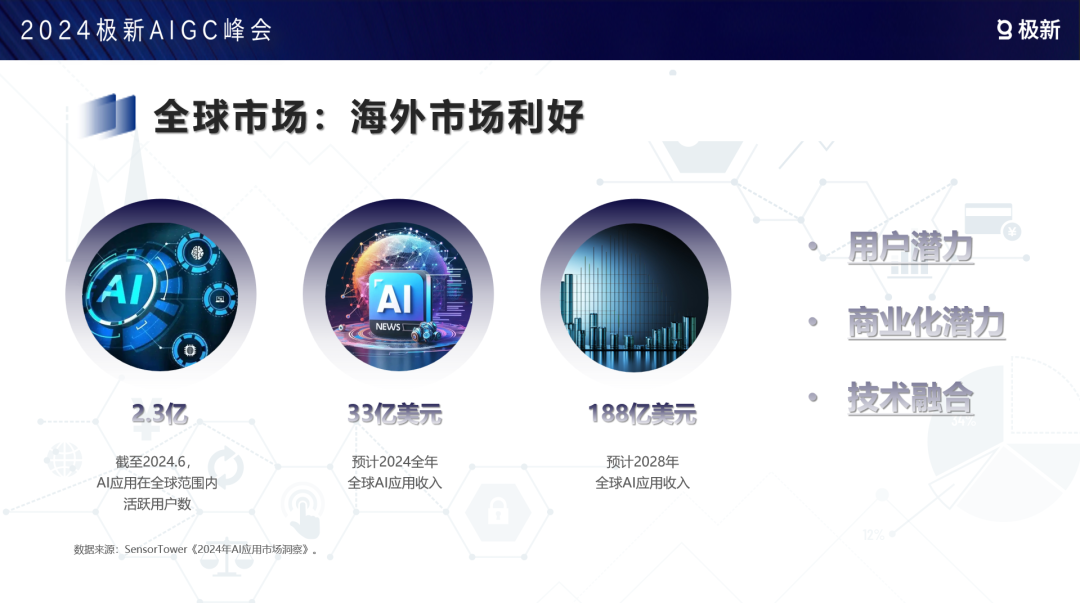
3. Mature paid culture and investment environment in overseas markets
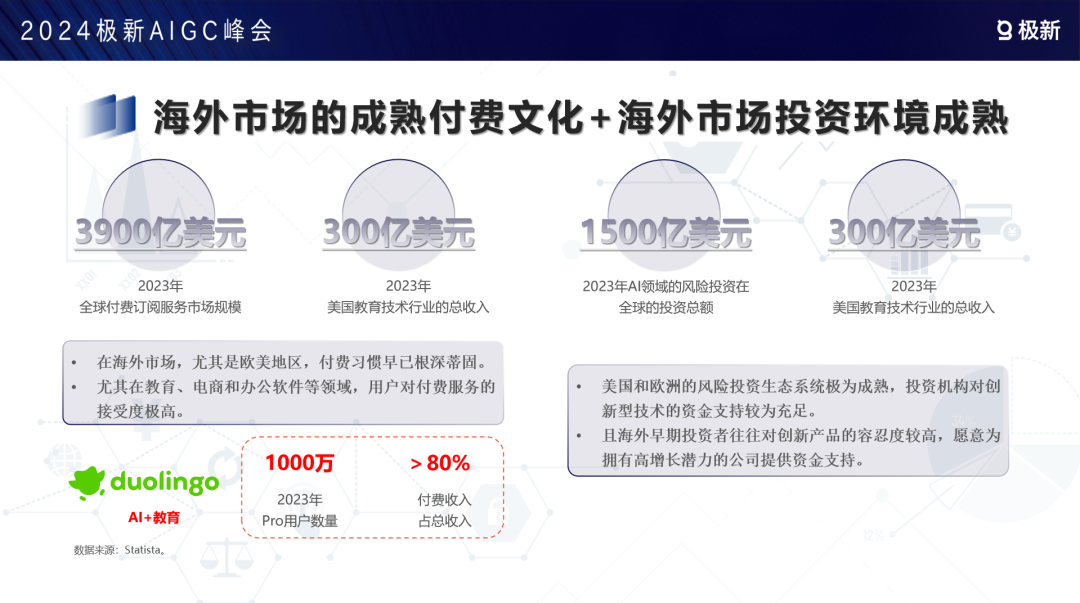
02
Where Should AI Expansion Go?
1. Opportunities in Japan: Technology, Cost, and Scenario Advantages
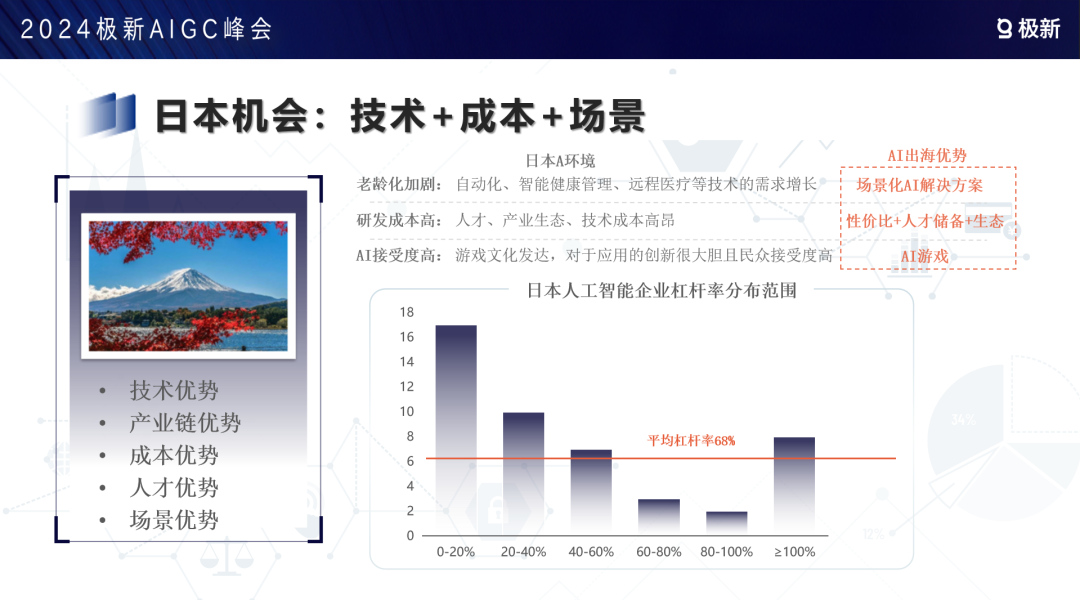
2. Opportunities in Southeast Asia: Capital Enthusiasm and Demand Gap
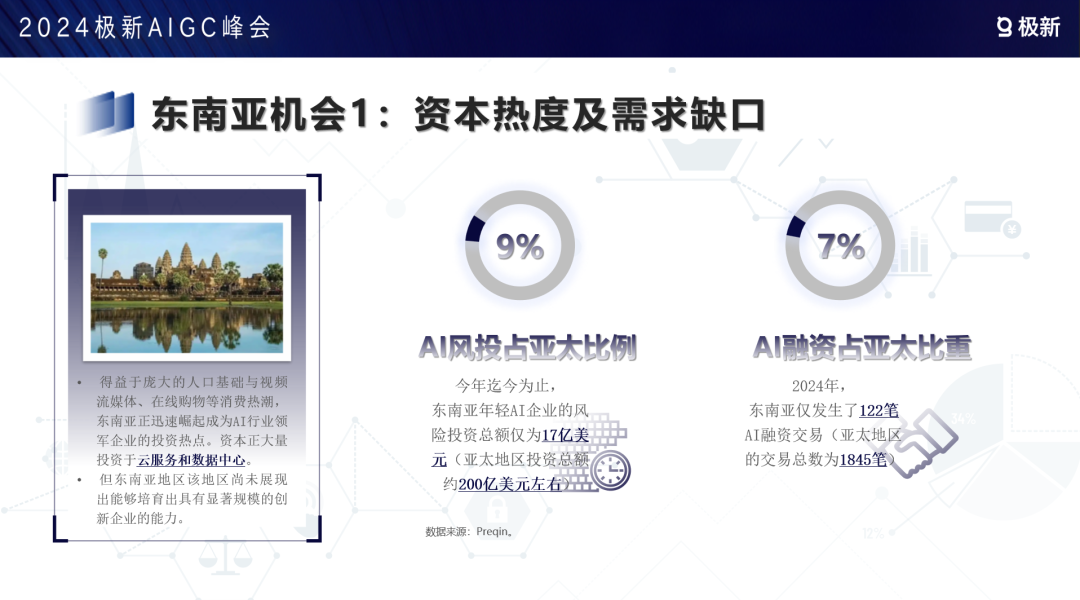
3. Opportunities in Europe and America: Commercialization Potential and Growing Market Demand
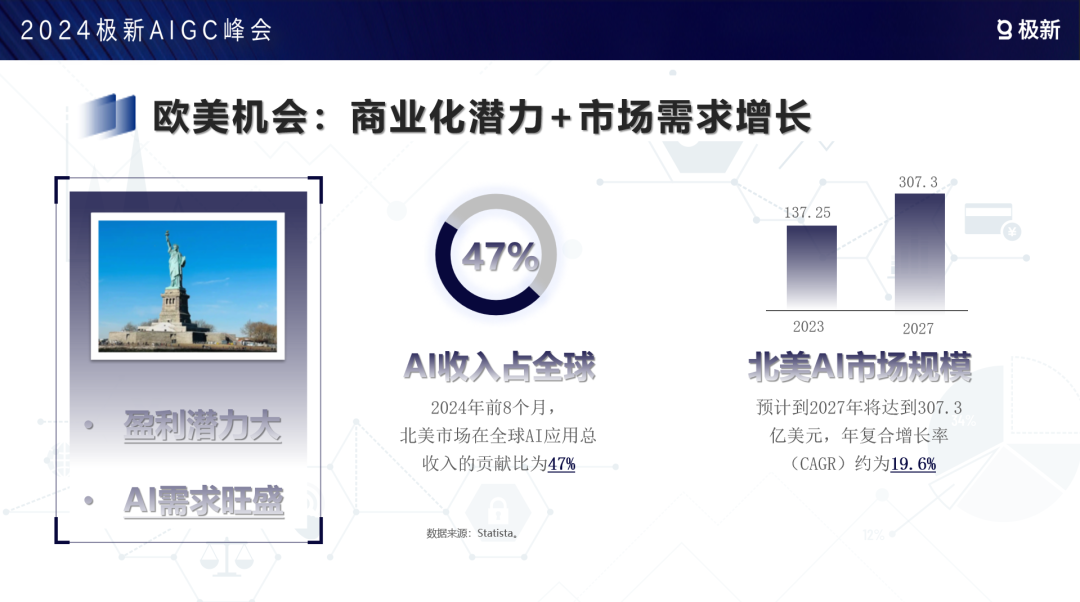
4. Opportunities in the Middle East: Demand Growth and Government Support
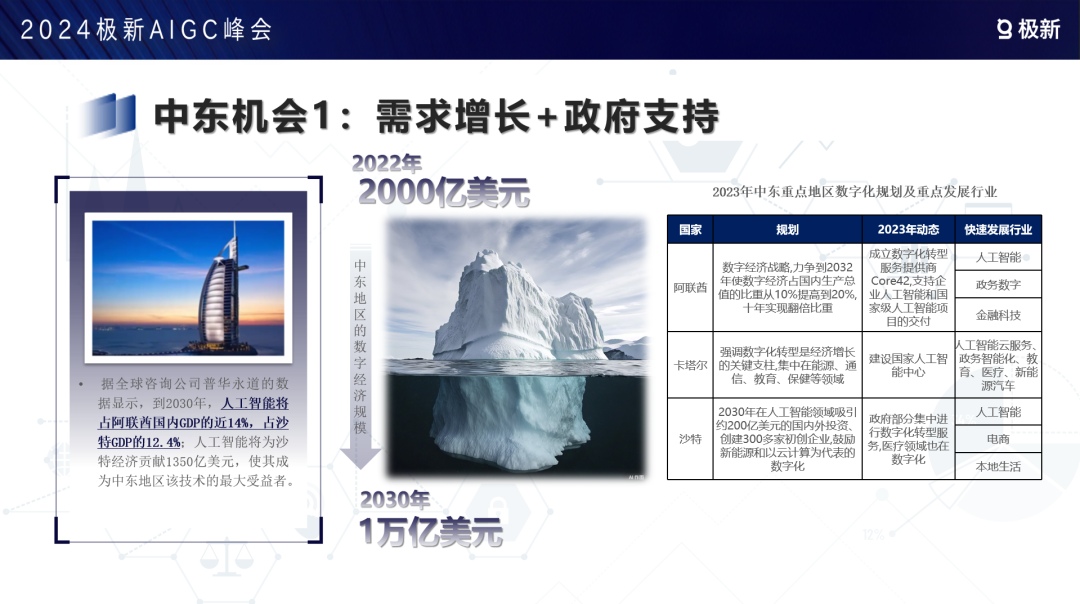
03
How to Expand AI Overseas?
Pathway to Internationalization: Applications First
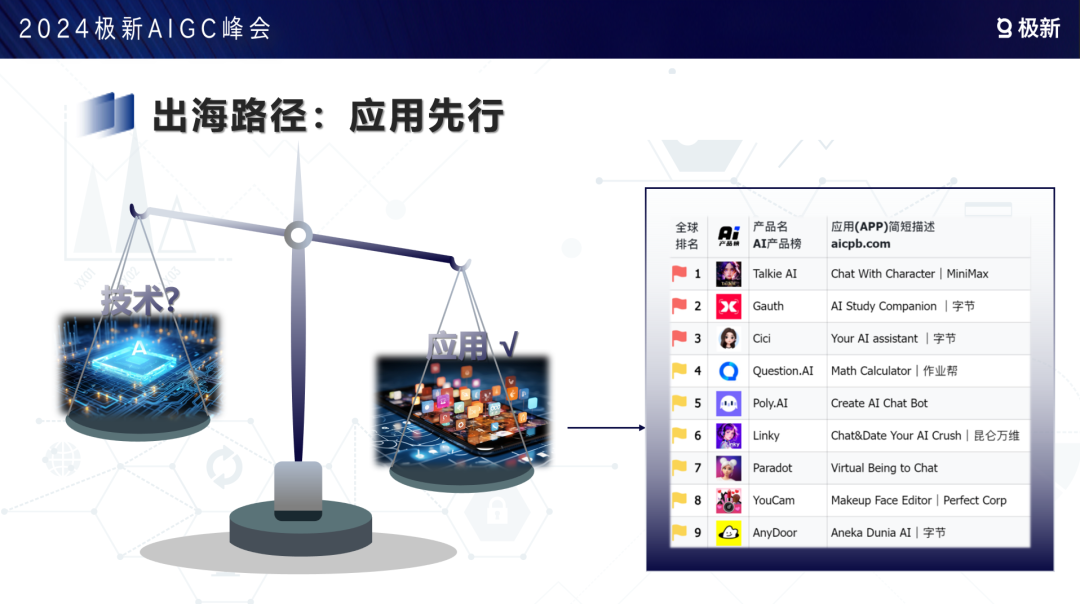
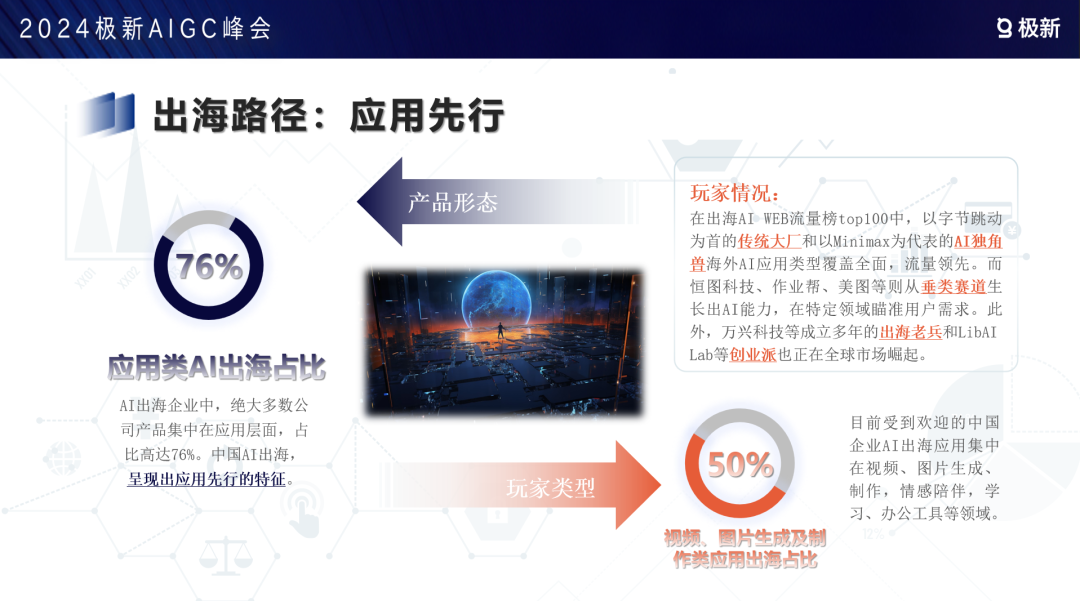
04
What Obstacles Hinder AI Internationalization?
1. Monetization Pressure
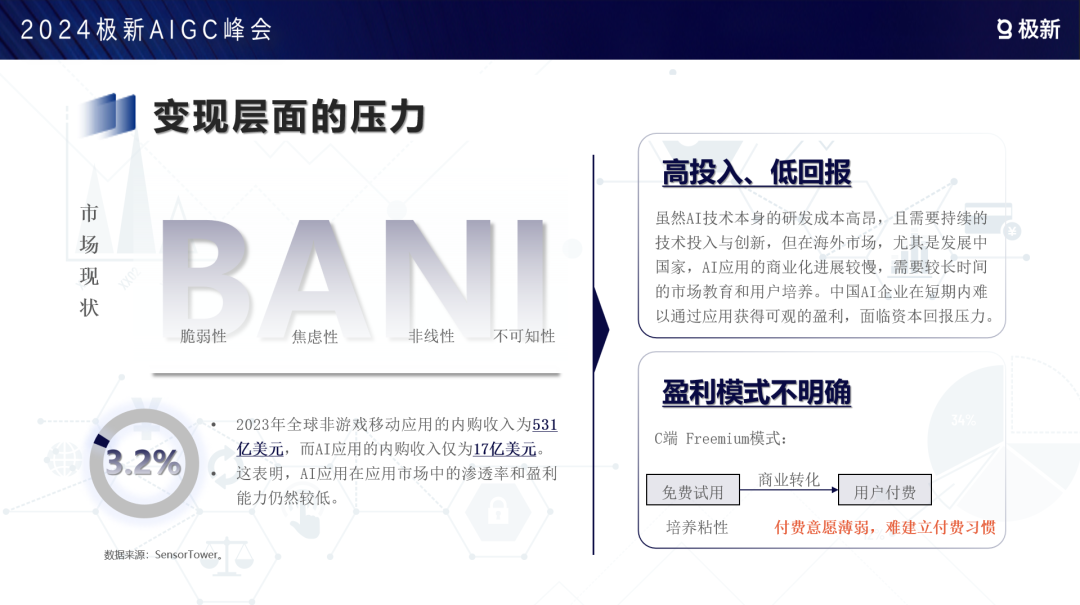
2. Geopolitical Rivalry
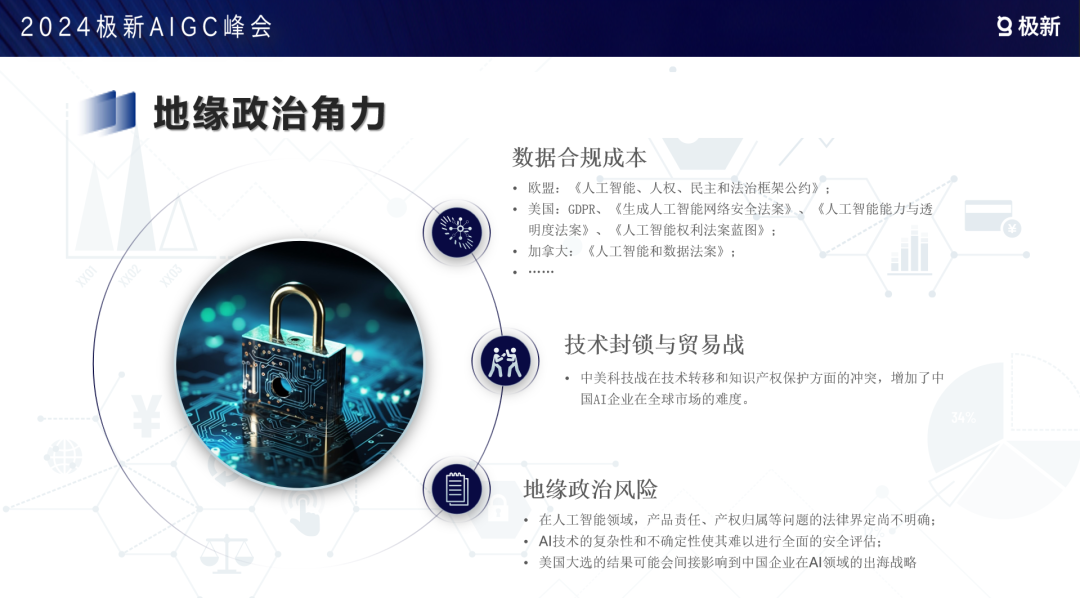
3. Economic and Inflationary Pressures
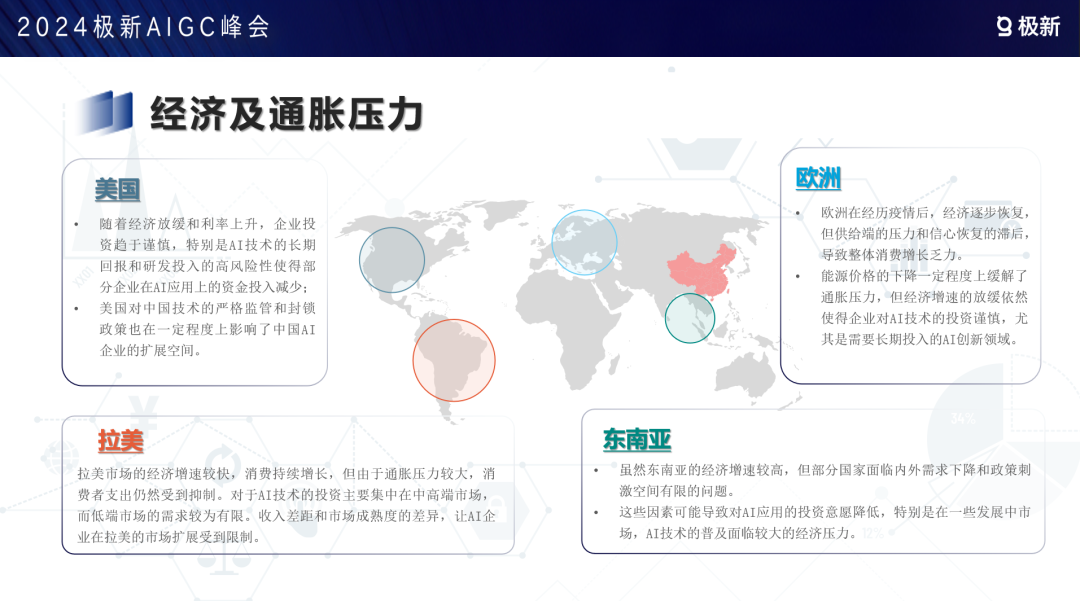
Chinese AI enterprises venturing overseas stand at a pivotal juncture. Opportunities such as technological innovation, AI+hardware integration, cultural adaptation, and compliance certification offer a vast stage for enterprises to expand into overseas markets. However, challenges like monetization pressure, geopolitics, and economic inflation also test their strategic acumen and execution capabilities. Moving forward, enterprises must prioritize innovation, fortify technological advantages, delve deeper into localized operations, enhance compliance levels, and advance steadily, infusing Chinese momentum into the global AI industry and jointly embracing the promising future of the intelligent era.

